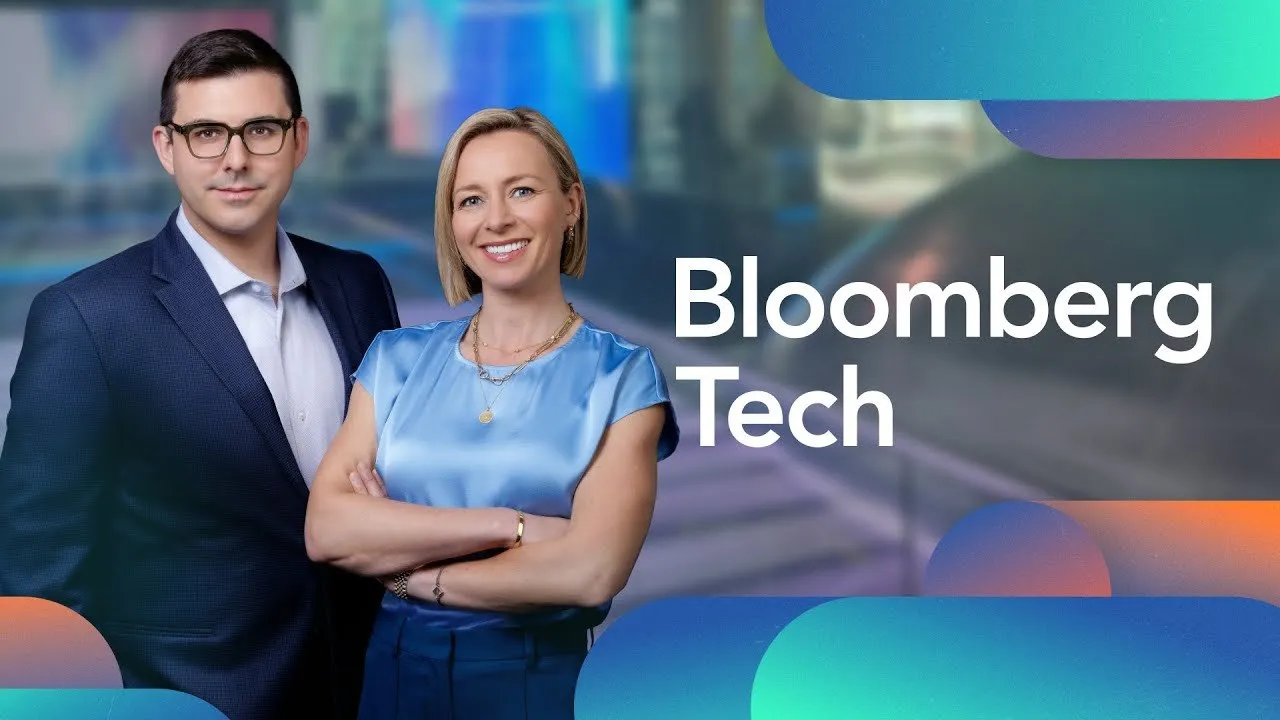Table of Contents
The tech industry just watched Lina Khan attempt a victory lap that landed about as gracefully as a face-plant at the finish line. Her celebration of Figma's successful IPO as vindication for blocking Adobe's $20 billion acquisition reveals everything wrong with our current approach to tech regulation.
Key Takeaways
- Lina Khan celebrated Figma's IPO success as proof that blocking the Adobe merger was correct, but investors actually had better returns with the original deal timeline
- The FTC's intervention philosophy assumes government officials can predict future competition better than market participants and business leaders
- Meta's new AI Superintelligence team is 45% Chinese talent, raising questions about America's education system and national security implications
- Traditional entry-level jobs in law, consulting, and other white-collar fields face existential threats from AI automation
- Chinese companies like BYD are building vertically integrated supply chains that could dominate global markets without reciprocal trade protections
- The real monopolies crushing consumers exist in government-regulated sectors like healthcare, education, and housing - not competitive tech markets
The Figma Victory Lap That Wasn't
Here's what actually happened with the Figma situation. Back in 2022, Adobe wanted to acquire the design startup for $20 billion, plus a $1 billion breakup fee if the deal fell through. The FTC under Khan's leadership effectively killed the deal through regulatory pressure. Figma walked away with that billion-dollar consolation prize, Adobe got a bruised ego, and Khan declared mission accomplished.
Fast forward to this year, and Figma goes public at around $20 billion, immediately shooting up to nearly $50 billion at peak trading. Khan took to social media calling this "a great reminder that letting startups grow into independently successful businesses rather than be bought up by existing giants can generate enormous value."
Sounds compelling until you run the actual numbers. If you invested in Figma at their Series C round and held through the Adobe deal timeline, your internal rate of return would have been 187%. That's phenomenal. But if you held through to the IPO at current market cap? Your IRR drops to 106%.
The math doesn't lie - investors who would have taken the Adobe deal actually had better annual returns than those who waited for the IPO. Khan's celebrating lower returns as a regulatory win, which tells you everything about how disconnected these decisions are from economic reality.
But here's the deeper problem with Khan's approach. She's essentially arguing that bureaucrats in Washington can predict competitive dynamics better than the entrepreneurs, investors, and employees actually building these companies. That level of hubris would be laughable if it weren't so damaging.
Think about what Adobe and Figma actually compete on - design software that costs maybe $10-20 per month. We're talking about niche productivity tools in an era where AI is revolutionizing how software gets built. Khan believes that combining two companies with similar pricing models will somehow reduce competition decades down the line.
The argument falls apart when you consider how quickly new competitors can emerge. Any reasonably funded startup team could replicate core features of Adobe or Figma's software within a year for under $10 million. They usually don't because the existing products are already so cheap and effective that competing doesn't make economic sense.
Where Real Monopolies Actually Exist
Here's the irony that makes Khan's tech crusade so frustrating. While she's busy micromanaging mergers between companies offering affordable software, actual monopolies are crushing American consumers in sectors where government involvement is heaviest.
Healthcare represents the most obvious example. Try getting a medical procedure without insurance company approval. Try understanding what anything costs before you receive treatment. Try finding alternatives when pharmaceutical companies charge hundreds of dollars for insulin that costs pennies to produce. These aren't natural market outcomes - they're the result of regulatory capture and government-enforced barriers to competition.
Education offers another perfect case study. Want to practice law? You need a degree from an accredited law school, which costs around $36,000 annually for three years at state schools. The accreditation system creates an artificial bottleneck that keeps prices high while limiting innovation. Khan could tackle the university accreditation monopoly that's saddling students with crushing debt, but she's apparently too busy worrying about design software pricing.
Housing rounds out the trilogy of government-created monopolies. Between zoning restrictions, permitting delays, and regulations that favor large developers over smaller builders, many American cities have made affordable housing virtually impossible to build. Meanwhile, institutional investors are buying up single-family homes at scale, further constraining supply.
These are the sectors where regulatory intervention could actually help consumers. Instead, we get performative antitrust theater targeting industries that have consistently delivered more value for less money.
The Meta AI Team and America's Talent Challenge
Speaking of industries delivering value, Meta just announced their new Artificial Superintelligence team, and the composition reveals some uncomfortable truths about American competitiveness. Of the 51 people they've hired for this critical initiative, roughly 45% have Chinese backgrounds - either Chinese nationals or Chinese-Americans.
Before anyone starts throwing around xenophobia accusations, this isn't about individual loyalty or capability. The people Meta hired are undoubtedly brilliant. The concerning part is what this says about our education system and talent pipeline.
When you look at where these AI researchers got their training, Chinese universities dominate the list. Shanghai Jiao Tong University, Tsinghua University in Beijing, MIT, then Nanjing and other Chinese institutions. About 75% of the team holds PhDs, and 75% are first-generation immigrants.
This creates a fascinating paradox. We're essentially watching the race to artificial superintelligence being staffed primarily by talent that America didn't develop domestically. Meanwhile, our own universities are charging students six figures for degrees that increasingly seem disconnected from cutting-edge research and industry needs.
There's also the uncomfortable national security angle that intelligence professionals are surely monitoring. Not because these individuals pose inherent risks, but because adversarial governments have historically leveraged family connections and cultural ties to compromise researchers and engineers. It's not xenophobic to acknowledge this reality - it's strategic awareness.
The deeper question is whether we can accelerate domestic talent development. If it takes seven to eight years to produce a PhD-level AI researcher through traditional channels, can we compress that timeline to two years using AI-assisted education? This connects directly to broader questions about educational disruption.
The End of Entry-Level White Collar Work
Traditional career paths are facing an existential crisis that makes the Figma merger debate look quaint by comparison. AI is already performing work that used to require first and third-year law associates, generating legal motions in hours that might take human lawyers weeks to complete.
A partner at a promising law firm recently noted that AI can now produce higher-quality legal work faster than junior associates. Someone should probably mention this to the thousands of students currently borrowing money to attend law school.
This creates an opportunity for genuine educational innovation. Instead of fighting over software company mergers, why not tackle the real monopoly constraining legal education? Law school currently costs around $36,000 annually at state institutions for three years. Could AI-assisted education deliver equivalent bar exam preparation for $15,000 over two years?
The traditional education establishment will fight this kind of disruption harder than any tech merger. University administrators, accreditation bodies, and established law firms benefit from the current system's barriers to entry. But for students facing crushing debt loads and uncertain job prospects, alternative pathways could provide real value.
Similar disruption threatens consulting, finance, and other white-collar industries where junior roles involve analysis and document production. The question isn't whether AI will replace these positions - it's happening already. The question is whether we'll adapt our education and training systems accordingly.
China's Industrial Ambitions and America's Response
The BYD electric vehicle story illustrates China's approach to global market domination. This isn't just about making cars - it's about controlling entire supply chains from manufacturing to logistics.
BYD recently shipped over 7,000 electric vehicles to Brazil using their own custom-built car carrier ships. These aren't traditional cargo vessels - they're roll-on, roll-off ships designed specifically for automotive transport. Cars literally drive off the ship in lines, about 100 per hour, like leaving a parking garage.
Why build their own shipping fleet? Because BYD wants to control every aspect of getting their products to global markets. They're not just competing on price or features - they're building vertically integrated systems that eliminate dependencies on other companies or countries.
This represents the kind of long-term strategic thinking that American companies often struggle to match. While we debate quarterly earnings and investor relations, Chinese companies are building infrastructure for market dominance decades in the future.
BYD's vehicles cost roughly half what comparable American or European electric cars cost. Their Yang Wang U9 supercar targets the high-end market traditionally dominated by Ferrari and Lamborghini. They're not just going after budget segments - they want the entire market.
European regulators will almost certainly block or heavily restrict BYD imports, just as Asian countries restrict foreign automotive imports. The question is whether America will reciprocate with similar protections or continue allowing asymmetric trade relationships that undermine domestic manufacturing.
Getting Regulation Right
The irony of our current regulatory approach is that we're fighting the wrong battles. Tech companies have consistently delivered more value for less money - free email, free web browsers, essentially unlimited cloud storage, and productivity software that costs less than a lunch.
Meanwhile, sectors with heavy government involvement - healthcare, education, housing - have seen costs skyrocket while quality stagnates. These are the areas where aggressive regulatory intervention could actually help consumers.
Instead of predicting competitive outcomes in fast-moving technology markets, regulators should focus on removing barriers that prevent competition in captured industries. Break up university accreditation monopolies. Eliminate regulatory barriers that protect healthcare incumbents. Reform zoning and permitting processes that constrain housing supply.
The goal should be enabling more competition, not micromanaging specific business combinations. When government officials start taking victory laps for market outcomes they helped create through intervention, you can be sure they're solving the wrong problems.
The tech industry will continue innovating regardless of regulatory theater. The question is whether America will maintain its competitive advantages in critical sectors like AI development, or whether we'll regulate ourselves into irrelevance while other countries build the future.





